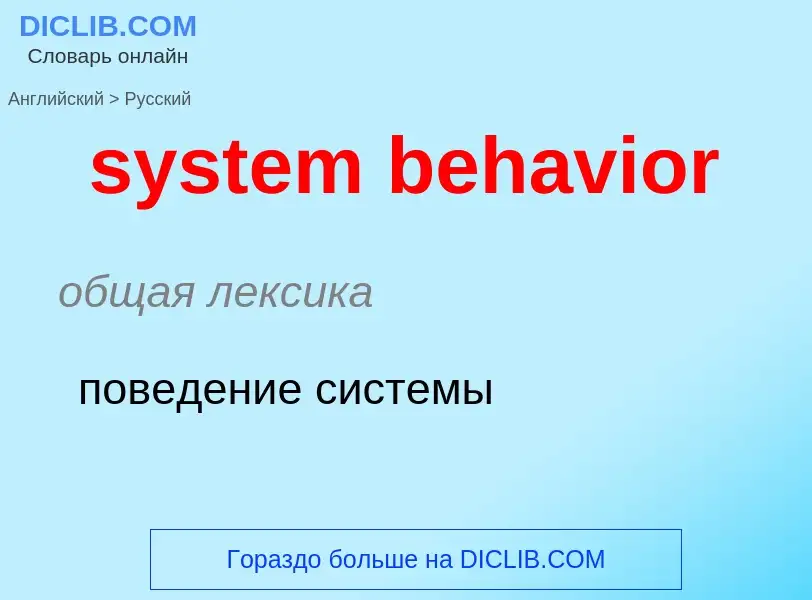Traduzione e analisi delle parole tramite l'intelligenza artificiale ChatGPT
In questa pagina puoi ottenere un'analisi dettagliata di una parola o frase, prodotta utilizzando la migliore tecnologia di intelligenza artificiale fino ad oggi:
- come viene usata la parola
- frequenza di utilizzo
- è usato più spesso nel discorso orale o scritto
- opzioni di traduzione delle parole
- esempi di utilizzo (varie frasi con traduzione)
- etimologia
system behavior - traduzione in russo
общая лексика
поведение системы
Wikipedia
.jpg?width=120)
Parental care is a behavioural and evolutionary strategy adopted by some animals, involving a parental investment being made to the evolutionary fitness of offspring. Patterns of parental care are widespread and highly diverse across the animal kingdom. There is great variation in different animal groups in terms of how parents care for offspring, and the amount of resources invested by parents. For example, there may be considerable variation in the amount of care invested by each sex, where females may invest more in some species, males invest more in others, or investment may be shared equally. Numerous hypotheses have been proposed to describe this variation and patterns in parental care that exist between the sexes, as well as among species.
Parental care is any behaviour that contributes to offspring survival, such as building a nest, provisioning offspring with food, or defending offspring from predators. Reptiles may produce self-sufficient young needing no parental care, while some hatchling birds may be helpless at birth, relying on their parents for survival. Parental care is beneficial if it increases the parent's inclusive fitness, such as by improving offspring survival, quality, or reproductive success. Since parental care is costly and often affects the parent's own future survival and reproductive success, parents ensure that any investment is well-spent. Parental care thus only evolves where it is adaptive.
Types of parental care include maternal or paternal care, biparental care and alloparental care. Sexual conflict is known to occur over mating, and further familial conflicts may continue after mating when there is parental care of the eggs or young. For example, conflict may arise between male and female parents over how much care each should provide, conflict may arise between siblings over how much care each should demand, and conflicts may arise between parents and offspring over the supply and demand of care.
Although parental care increases the evolutionary fitness of the offspring receiving the care, it produces a cost for the parent organism as energy is expended on caring for the offspring, and mating opportunities may be lost. As this is costly, it only evolves from a when the costs are outweighed by the benefits.
Parental care is seen in many insects, notably the social insects such as ants, bees and wasps; in certain fishes, such as the mouthbrooders; widely in birds; in amphibians; some reptiles and especially widely in mammals, which share two major adaptations for care of the young, namely gestation (development of the embryo inside the mother's body) and production of milk.

.jpg?width=200)


![[[Harbour seal]] mother suckling its young [[Harbour seal]] mother suckling its young](https://commons.wikimedia.org/wiki/Special:FilePath/Harbour seal breast feeding 1150144.jpg?width=200)
![Japanese Snow Monkey]] mother grooming her young. Japanese Snow Monkey]] mother grooming her young.](https://commons.wikimedia.org/wiki/Special:FilePath/Japanese Snow Monkey (Macaque) Mother Grooms Her Young.jpg?width=200)

![Pregnant male]] [[seahorse]] Pregnant male]] [[seahorse]]](https://commons.wikimedia.org/wiki/Special:FilePath/Tehotny morsky konik.jpg?width=200)
